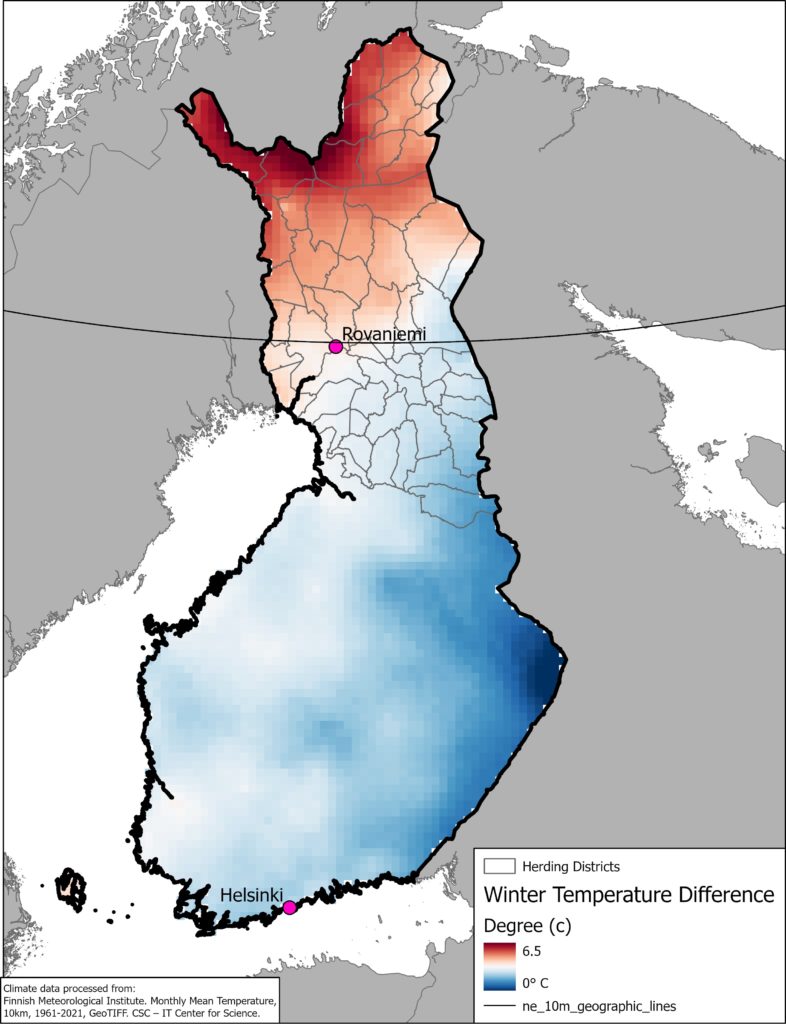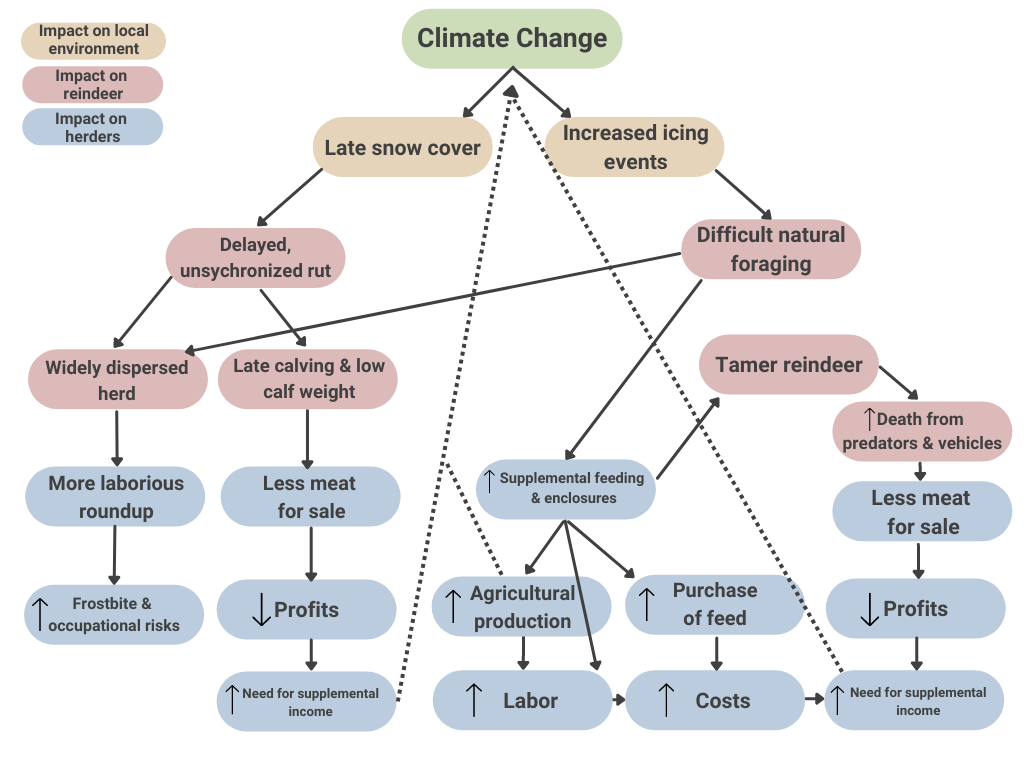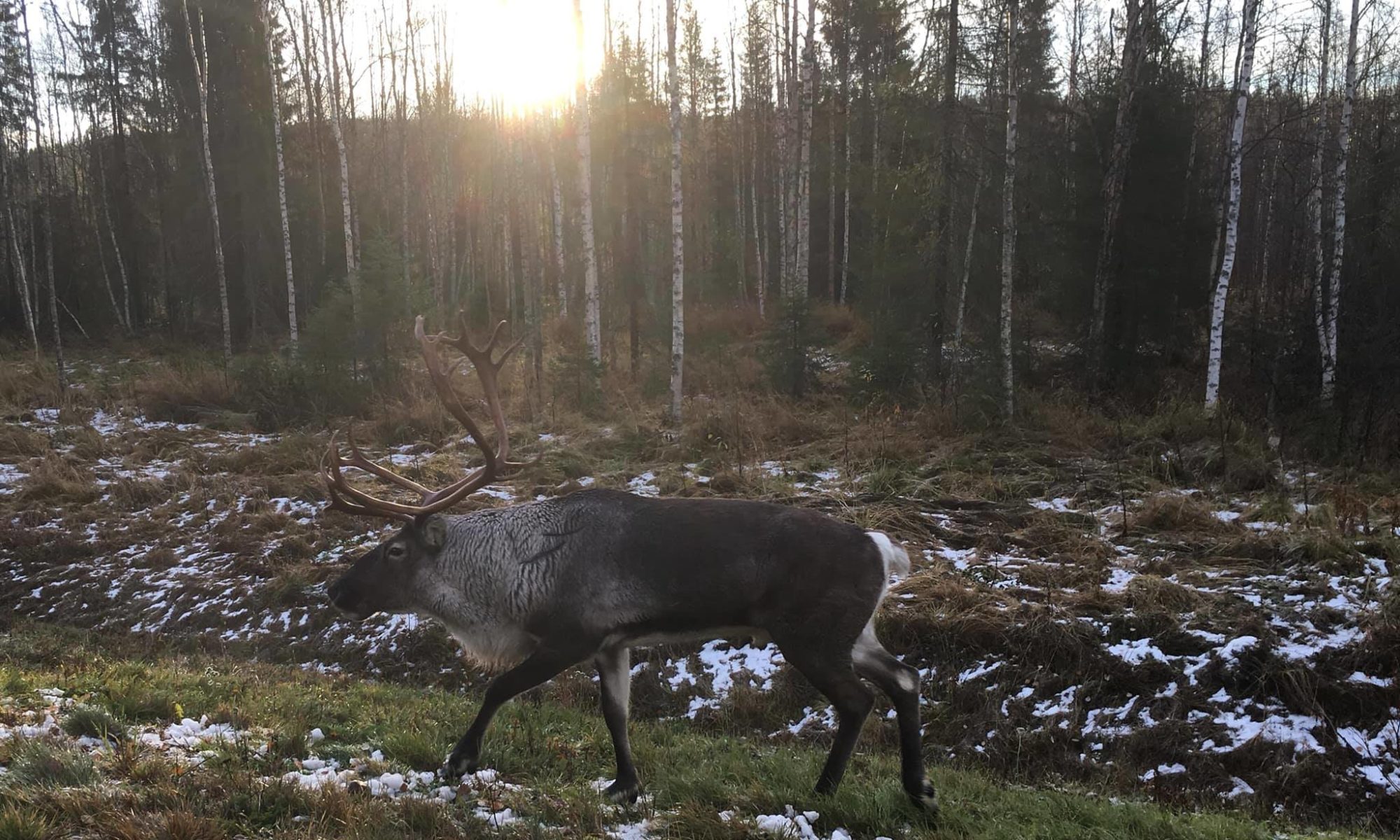I was fortunate enough to be invited to contribute to an American Journal of Human Biology special issue on extreme weather events and they impact they can have on human health and wellbeing. Thank you to Asher Rosinger for the invite and putting together a timely and important series of articles!
My main research focuses on how reindeer herders of subArctic Finland cope with a physically demanding occupation in extreme cold. However, it is hard to work in Finland and not see the dramatic impacts that climate change are having on the landscape and the people. My wonderful collaborators, Drs. Minna Turunen and Päivi Soppela, have conducted a great deal more research on how climate change has impacted the reindeer herding occupation. For this contribution, the three of us worked with Dr. Sirpa Rasmus to review the ways in which climate change has increased the number of extreme events, in particular icing events in Finland and in turn how these events impact the landscape, the reindeer, reindeer herding, and the herders themselves.

In short, an increased number of rain-on-snow events that create icing conditions dramatically impact the reindeer herding livelihood from forcing herders to increase greater control of their herd, needing to increase agricultural production to feed reindeer, poor reindeer health, and negatively impacted herder heath through increased risk of cold related injuries and mental health concerns. Reindeer herders demonstrate a wide range of resilience behaviors for confronting these extreme events; however, there is likely a limit to what can be done.

